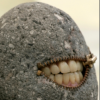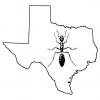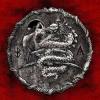- Formiculture.com
- Forums
- Gallery
- Members
- Member Map
- Chat

Queen test tube deaths?
Started By
Roachant
, Aug 19 2015 5:13 PM
13 replies to this topic
#1
 Offline
-
Posted August 19 2015 - 5:13 PM
Offline
-
Posted August 19 2015 - 5:13 PM
Hi all,
I have a question, what kind of water do you use in your test tube set ups?
I'm asking because could using chlorinated water in the test tubes be causing premature deaths of queens?
I guess I had two questions.
Don
I have a question, what kind of water do you use in your test tube set ups?
I'm asking because could using chlorinated water in the test tubes be causing premature deaths of queens?
I guess I had two questions.
Don
#2
 Offline
-
Posted August 19 2015 - 5:41 PM
Offline
-
Posted August 19 2015 - 5:41 PM
I use tap water, pretty clean hhere and water is our main source of energy here. Chlorinated water would probably if not definitely kill ants. Why wouldn't it?
#3
 Offline
-
Posted August 19 2015 - 6:45 PM
Offline
-
Posted August 19 2015 - 6:45 PM
I'm very new to the hobby, but I have 15 queens in test tubes, some of them almost a month old, and I use city water. The smaller the organism, the more impact the chlorine has on them. But my tiny S. molesta have been doing fine for about a month now and have a big pile of eggs. If you're very concerned about it, let the water sit in an open container for a day first. That's enough time for most of the chlorine to leave. After all, that is the reason why pool owners have to keep adding it all the time.
~Dan
#4
 Offline
-
Posted August 19 2015 - 6:52 PM
Offline
-
Posted August 19 2015 - 6:52 PM
bottle water or we have a place here in lubbock called watermill express
Ant Queens found:
Solenopsis Invicta, Solenopsis xyloni, Brachymyrmex depilis/Sp, Myrmecocystus Mimicus, Pogonomyrmex barbatus,
Forelius pruinosus, Camponotus sayi, Dorymyrmex insanus, crematogaster ashmeadi,
----------------------------------------
Ant Queens i have going right now:
camponotus sayi, solenopsis invicta, Myrmecocystus Mimicus, Forelius pruinosus
Pogonomyrmex barbatus, and some others (no i.d.)
---------------------------------------
YouTube: AntsTexas
Facebook: https://www.facebook.com/cdockray1
Facebook page: AntsTexas
#5
 Offline
-
Posted August 19 2015 - 6:55 PM
Offline
-
Posted August 19 2015 - 6:55 PM
I use my tap water with chloramine with no issues. But my tap water is odd, because it doesn't harm small invertebrates like daphnia (and they should die quite quickly with any amount of chlorine/chloramine). Some towns use more chlorine or chloramine, or add other things to the water like fluoride.
I know quite a few who use bottled water or a good aquarium dechlorinator on tap water.
Deaths are at their highest in the first 2 weeks, due to injuries received in flight, landing, various injuries received from other ants, insects, etc., or from things like mites, phorid flies, or other parasites.
"Always do right. This will gratify some people, and astound the rest." -- Samuel Clemens
#6
 Offline
-
Posted August 20 2015 - 1:46 AM
Offline
-
Posted August 20 2015 - 1:46 AM
I was wondering also because I had some Camponotus pennsylvanius queens die in their tubes ( four out of five) and I have ten Lasius queens that are doing well and the only difference I did was use tap water for the Camponotus queens. I used distilled water for the Lasius.
#7
 Offline
-
Posted August 20 2015 - 4:18 AM
Offline
-
Posted August 20 2015 - 4:18 AM
I take no chances. I go and buy distilled water and organic cotton at the local Giant for all my anting needs. Plus, it's a lot cleaner and contains no microbes.
Species I keep:
1 Lasius cf. Neoniger 30 workers
1 Camponotus sp. 15 workers
20 Tetramorium SpE 30 workers
1 T. Sessile 200 workers
#8
 Offline
-
Posted August 20 2015 - 5:34 AM
Offline
-
Posted August 20 2015 - 5:34 AM
I used distilled water in the tubes, but regular tap water when I provided my two Camponotus pennsylvanicus queens some honey-water earlier this week. They seem to be doing fine.
#9
 Offline
-
Posted August 20 2015 - 6:24 AM
Offline
-
Posted August 20 2015 - 6:24 AM
I used distilled water in the tubes, but regular tap water when I provided my two Camponotus pennsylvanicus queens some honey-water earlier this week. They seem to be doing fine.
I have pretty limited experience in this hobby, but I've had more camponotus queens die on me for no discernable reason than any other ant species. They seem to be very, very stressed by any disturbance. I wouldn't give them any food (no honey-water) until there are a few workers, lest I accidentally stress them out unnecessarily.
Edited by prettycode, August 20 2015 - 6:25 AM.
#10
 Offline
-
Posted August 20 2015 - 7:32 AM
Offline
-
Posted August 20 2015 - 7:32 AM
I use distilled water for my test tubes. The single Camp pennsylvanicus I raised this summer was put into this setup. and now is in a Mini Hearth with ~10 workers. It really depends on the quality of the water. I find my tap water to be highly chlorinated. You can smell it coming out of the tap, or shower, and I have unlimited access to distilled water (though its cheap at the grocery store too) in managing an entomology research lab. I do use filtered tap water for them to drink from though. It could also be other chemicals, ex. trace heavy metals, may not effect us at a low concentration, but can effect ants.
Stress is multifaceted, so I try to limit what factors into it as much as possible, cleanest water, organic cotton balls (as conventional cotton farming has high pesticide use), dark vibration free/reduced environment, and foods that the species will be familiar with, or attracted to in nature as much as possible.
#11
 Offline
-
Posted August 20 2015 - 8:52 AM
Offline
-
Posted August 20 2015 - 8:52 AM
Tap water can have all sorts of bad stuff in it, even pharmaceuticals (http://www.webmd.com...-drinking-water). Many people in this hobby have reported problems they suspect were caused by tap water. You can check the particulate levels to see how pure your water is, and if it's fairly pure, then it might not be so bad. I think drtrmiller has said that his tap water is relatively clean. The tap water where I live is horrible, so I don't give any of my pets anything but bottled water.
#12
 Offline
-
Posted August 21 2015 - 4:18 PM
Offline
-
Posted August 21 2015 - 4:18 PM
I just caught 3 more queens that were dying in a public swimming pool. I put them in test tube setups using fish-tank water. Anyone wanna take a stab at what effect all that will have? ![]()
~Dan
#13
 Offline
-
Posted August 21 2015 - 4:54 PM
Offline
-
Posted August 21 2015 - 4:54 PM
I just caught 3 more queens that were dying in a public swimming pool. I put them in test tube setups using fish-tank water. Anyone wanna take a stab at what effect all that will have?
Depends how long they have been in the pool. They might die. The fish tank water is safe, but with distilled water or bottled water, the mold on the cotton will come a little later.
Species I keep:
1 Lasius cf. Neoniger 30 workers
1 Camponotus sp. 15 workers
20 Tetramorium SpE 30 workers
1 T. Sessile 200 workers
#14
 Offline
-
Posted September 5 2015 - 6:10 PM
Offline
-
Posted September 5 2015 - 6:10 PM
I thought I'd mention something else on this thread. I'd recently considered switching from city water to bottled water for my test tube setups, but decided against it. So far, my queens have been doing great with the city water. In fact, my S. molesta just had their first nanitics yesterday. And, interestingly, I haven't noticed any mold issues at all yet with any of my 40 test tube queens. Could it be that using chlorinated water helps to control mold and perhaps other microbe outbreaks? I wonder if folks that use city water generally have better luck with controlling mold. Has anyone done any experimentation in this regard?
~Dan
1 user(s) are reading this topic
0 members, 1 guests, 0 anonymous users




















